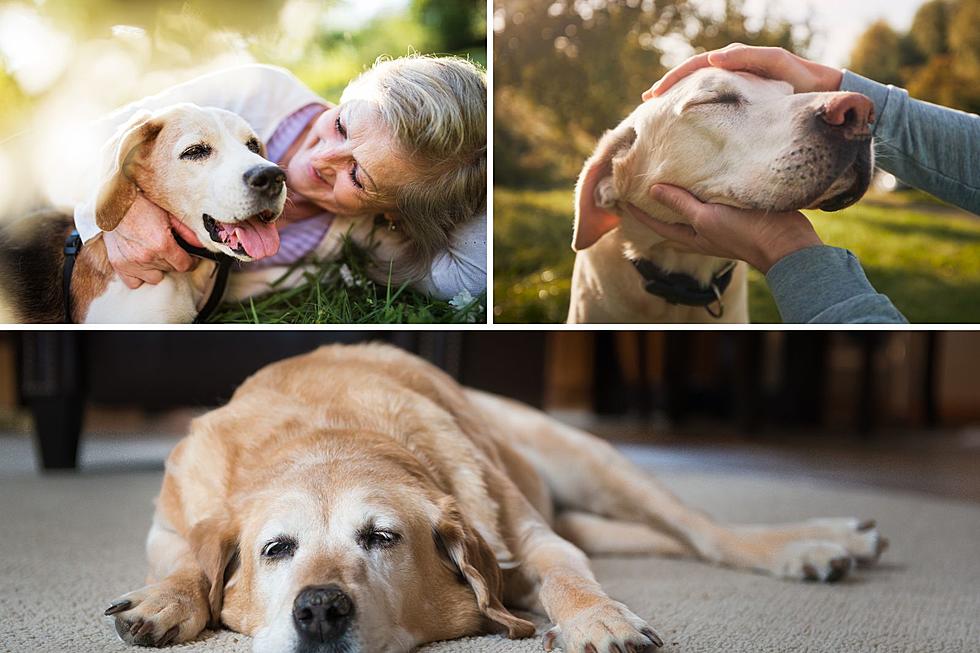
Have A Dog? Here’s How To Tell His Or Her Age
A dog ages seven years for every human year. We've all heard that. Seven years to a year. Case closed.
Not so fast, Sherlock.
While that may be a good general rule of thumb, it's not quite that simple.

Web MD has a section that deals with pets, and specifically dogs and aging. And they say depending on the size of your lovable little (or big) Fido, they actually mature much more quickly early on than we do. I guess they 'age' faster in those puppy years. That first year could equal about 15 human years.
OK, fine. But what about that dog you adopted, that purebred you were able to find, or maybe that fantastic mutt that's become part of the family? They were of an 'uncertain' age when you got 'em, so how do you know how old he is now?
Teeth. The teeth.
According to the article:
- By 8 weeks: All baby teeth are in.
- By 7 months: All permanent teeth are in and are white and clean.
- By 1-2 years: Teeth are duller and the back teeth may have some yellowing.
- By 3-5 years: All teeth may have tartar buildup and some tooth wear.
- By 5-10 years: Teeth show more wear and signs of disease
- By 10-15 years: Teeth are worn, and heavy tartar buildup is likely. Some teeth may be missing.
I know, that doesn't give you an exact age, but it does give you an idea of how old Rover is. Your Vet can probably give you an even better idea with an exam of things like bones, joints, muscles, and more. So if you really, really are wondering about ol' Sarge (OK, we had a dog named Sarge and I wanted to give him a little memory love), spend some bucks and have the Doc fill you in.
And of course, give him any birthday you want. After all, any day is a great day for an extra special dog treat.
LOOK: Most common fast food chains in Iowa
Gallery Credit: Stacker


